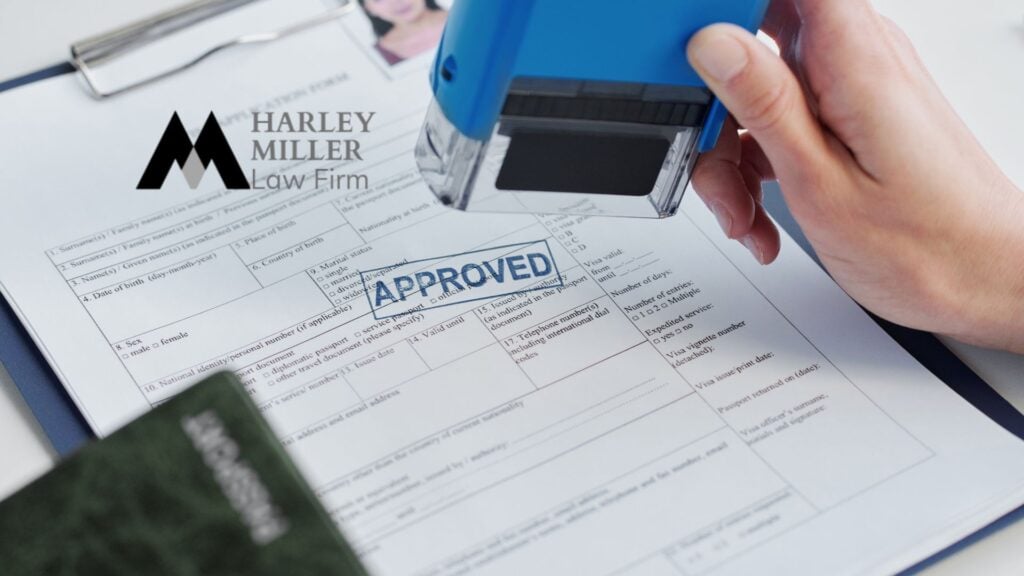

Since 2010, the Global Law Experts annual awards have been celebrating excellence, innovation and performance across the legal communities from around the world.
posted 4 hours ago
Growing international exchanges have increased demand for using documents issued by foreign authorities in Vietnam. For these documents to have legal validity in Vietnam, consular legalization ensures the authenticity of signatures, seals, and titles. This article analyzes the concept, procedure, legal basis, and exemption cases, compares it with the Apostille mechanism, highlights practical difficulties, and provides important implementation notes to enhance awareness and skills in carrying out consular legalization effectively.
1. Concept of Consular Legalization
Consular legalization is an administrative procedure clearly stipulated in Vietnamese law to confirm the legal validity of documents issued by foreign authorities before they can be used in Vietnam. According to Clause 2, Article 2 of Decree 111/2011/ND-CP, “consular legalization is the act of the competent authority of Vietnam certifying the seal, signature, and title on documents issued abroad so that such documents are recognized and used in Vietnam.”
Consular legalization does not certify the content or form of the document—it only confirms the authenticity of formal elements such as signatures, seals, and the signatory’s title. It is the “key” to ensuring that foreign documents become legal, reliable, and valid for use in administrative procedures and civil, labor, and business transactions in Vietnam.
For example, when a foreigner wants to register marriage, apply for a work permit, complete import procedures, adopt a child, or register civil status in Vietnam, documents issued abroad—such as birth certificates, single status certificates, diplomas, and judicial records—must be legalized.
2. Consular Legalization Procedure
2.1. Overview of the Procedure
The consular legalization procedure follows strict steps controlled by the competent authorities of both countries to ensure mutual legal recognition of documents. This procedure is detailed in Decree 111/2011/ND-CP and related guiding documents.
The procedure consists of four steps:
Certification of documents abroad: Documents issued abroad must be certified for signatures and seals at a notary office or competent authority in the issuing country.
Consular certification at the diplomatic mission of the issuing country: After notarization, the document is authenticated at the Ministry of Foreign Affairs or the consular authority of that country.
Legalization at the Embassy or Consulate of Vietnam or at the Ministry of Foreign Affairs/Department of External Relations in Vietnam: The document already certified by the issuing country is submitted to the Vietnamese diplomatic mission for consular legalization, confirming the validity of its form for recognition in Vietnam.
Translation and notarization of the translation if used in Vietnam: The legalized foreign document must be translated into Vietnamese (if not bilingual or in English) and the translation notarized.
2.2. Required Documents
The required documents for consular legalization include:
In special cases requiring verification, the receiving officer may request the original or additional supporting documents to check authenticity.
2.3. Processing Time
One working day for applications with one to four documents
Up to five working days for applications with ten or more documents
Processing may take longer if verification or supplementation is required, especially when checking the authenticity of signatures, seals, and titles from the foreign side.
2.4. Practical Notes and Common Issues
Cases where consular legalization may be refused include:
When verification takes a long time due to delayed responses from foreign authorities, applicants should proactively contact the authorities and prepare additional documents when requested.
3. Legal Basis in Vietnam
The consular legalization of foreign documents used in Vietnam is governed by a comprehensive system of legal documents:
In addition, judicial assistance treaties and bilateral or multilateral agreements have special legal value in determining exemption cases.
Furthermore, online certification policies have been gradually supplemented and expanded since 2024 to align with digitalization and administrative simplification trends.
4. Competent Authorities
The system of competent authorities involved in the consular legalization procedure in Vietnam includes two main groups:
Domestic
Consular Department—Ministry of Foreign Affairs: the central state authority directly performing consular certification and legalization
Department of External Relations of Ho Chi Minh City: handling procedures for the southern region
Abroad
Vietnamese diplomatic missions, consular offices, or other authorized agencies performing consular functions abroad (Embassies/Consulates General of Vietnam in foreign countries)
Vietnamese missions abroad may directly receive and process consular legalization applications for documents issued by competent foreign authorities
All these authorities follow decentralized and transparent procedures, responsible for receiving, processing, and returning consular legalization results as well as supporting applicants (whether or not they use external service providers).
5. Exemption from Consular Legalization
Exemption from consular legalization is an exception that simplifies the process of recognizing cross-border documents in Vietnam. The list of countries exempted from consular legalization with Vietnam is based mainly on consular treaties, judicial assistance treaties (civil, criminal, family, labor), or bilateral notes. The list of exempted countries can be found on the Consular Affairs Portal of the Ministry of Foreign Affairs. This list is regularly updated. Countries that have signed treaties with Vietnam are usually those with close legal cooperation, for example:
Some former Soviet Union and Eastern European countries (Russia, Poland, Hungary, Bulgaria, Czech Republic, Slovakia, Romania, etc.)
Some Asian countries with judicial assistance treaties with Vietnam (Laos, Cambodia, China, Mongolia, Cuba, North Korea, etc.)
Note that not all documents from these countries are completely exempt from consular legalization. The scope of exemption depends on the treaty content.
5.1. Conditions for Exemption
For foreign documents to be exempt from consular legalization when used in Vietnam (or vice versa), the following conditions must be met:
The issuing country is on the list of countries exempted from consular legalization with Vietnam (according to bilateral treaties, notes, or reciprocity)
The type of document must fall within the scope of exemption clearly stipulated in the treaty (for example: civil, marriage, judicial, directly serving judicial assistance)
The document must be issued by the competent authority of the country that signed the treaty with Vietnam
When there are clear doubts about authenticity, the parties have the right to request official verification through the agreed judicial assistance channel
Some documents such as diplomas, certificates, judicial records, or commercial documents may still not be exempt (especially for China, Hong Kong, Macau) and must undergo consular legalization at the Vietnamese mission
The right to recognize exemption may also apply if the receiving authority in Vietnam can determine the authenticity of the document without requiring this procedure (special cases). However, translation into Vietnamese and notarization of the translation is always required if the document is not bilingual or in Vietnamese or English.
5.2. Factors Affecting Exemption
Judicial assistance treaties on civil, criminal, labor, and family matters: commitments to recognize or exempt consular legalization for judicial and civil documents, judgments, extracts, and civil status certificates
Consular treaties: stipulating recognition of official documents issued by consular officers or sent through consular channels, exempting consular legalization
Notes exchanged between central authorities: consistent practice of recognizing certain documents transmitted through official diplomatic channels without consular legalization
Reciprocity principle: with some developed countries (for example Japan, Australia), if civil status or judicial documents of Vietnam are recognized in that country, similar documents are recognized in Vietnam without consular legalization.
6. Comparison Between Consular Legalization and the Apostille Mechanism
6.1. Explanation of Apostille
Apostille is a certification under the Hague Convention of 1961 (Convention de La Haye du 5 octobre 1961) on the exemption of consular legalization for foreign public documents. This mechanism simplifies the authentication of documents among member states, requiring only a single certification (Apostille) from the government authority of the issuing country. Once issued, the document is recognized in all other member states without the need for legalization at the embassy or consulate of the country of use.
The types of documents eligible for Apostille are mainly public documents such as death certificates, birth certificates, marriage registrations, court judgments, and documents issued by notaries. The Convention does not apply to documents issued by consular or diplomatic officers or documents directly related to commerce or customs.
6.2. Vietnam and the Apostille Mechanism
Vietnam has not yet acceded to the Hague Convention on Apostille and therefore does not directly recognize Apostille stamps on foreign documents. This means that all documents from Apostille member states intended for use in Vietnam must still undergo consular legalization at the Vietnamese embassy or consulate, unless there is a bilateral agreement on exemption. Conversely, Vietnamese documents intended for use in Apostille member states must still undergo consular legalization and cannot be replaced by Apostille.
6.3. Comparison of Mechanisms
Consular legalization in Vietnam: a multi-step process (first at the foreign authority, then at the Vietnamese mission), more complex, requiring strict verification
Apostille: a one-step process (certification by a single authority, without the embassy of the country of use), simpler, saving time and cost, but only applicable among Hague Convention member states
If a document bears an Apostille but the country of use (such as Vietnam) is not a member, the user must still proceed with consular legalization at the Vietnamese mission.
This explains why many administrative procedures in Vietnam still require a complex consular legalization process, leading to significant time and cost for individuals and businesses.
7. Practical Challenges and Difficulties
Although the consular legalization procedure has been clearly stipulated, in practice many difficulties remain:
Each country has different regulations on document form and recognition, causing confusion for individuals and businesses
The procedure involves many steps, requiring movement between notary offices, foreign authorities, translation services, and then submission to Vietnamese authorities, making the process lengthy and costly
Strict requirements for verifying signatures, seals, and titles, while foreign authorities may respond slowly or inconsistently, prolonging processing time
Many copies, digital versions, or electronic documents are not accepted due to the lack of unified regulations on digital signatures and international electronic authentication codes
Difficulty in determining which documents are exempt from consular legalization when the exact scope of application is unclear (each country only exempts certain document types), leading to rejected applications and delays in important administrative procedures
The system for tracking application status is not fully synchronized with online public services, making progress checks and document supplementation sometimes manual and slow
8. Notes for Citizens When Carrying Out Consular Legalization
8.1. Document Preparation
Documents must be clear originals, not erased or altered
If documents have multiple pages, there must be a seal across the pages
Documents with validity periods (such as judicial records or certificates of marital status) must still be valid at the time of submission
If documents are not in Vietnamese or English, they must be translated into Vietnamese and the translation notarized. The applicant is responsible for translation accuracy
Prepare copies along with originals for comparison when requested
8.2. Procedure and Time
Submit applications early—at least two to three weeks before the intended use—to avoid delays due to verification from foreign authorities
After legalization, documents usually need to be translated and notarized, so consider additional time
Actively monitor the processing progress and maintain contact with the receiving authority to promptly provide additional documents when requested
During peak periods (such as school enrollment or foreign labor recruitment seasons), processing time may be longer
8.3. Costs
Applicants must pay consular legalization fees as stipulated in Circular 157/2016/TT-BTC
In addition to state fees, translation, notarization, courier, and service fees (if any) are borne by the applicant
Always request full invoices and receipts to avoid unclear costs
8.4. Exemption from Consular Legalization
Not all documents from countries with treaties with Vietnam are exempt from consular legalization. The scope of exemption depends on the treaty
Before submitting applications, check the list of countries and document types exempted on the Consular Affairs Portal of the Ministry of Foreign Affairs
Some commercial documents, diplomas, and certificates still require legalization, even if the issuing country has a treaty with Vietnam
8.5. Use of Intermediary Services
Applications may be submitted by post or through authorized service providers, but choose only reputable organizations with clear licenses
Avoid using unclear “fast-track” services, which may lead to legal risks or loss of documents
8.6. Seeking Legal and Expert Advice
For complex cases (investment, business, international adoption, civil disputes with foreign elements), consulting lawyers or legal experts is highly advisable
Lawyers can review document validity, determine which documents require legalization, which are exempt, and assist in preparing applications in compliance with regulations
Experts can provide solutions to save time and costs and minimize the risk of rejection
In many cases, the cost of hiring a lawyer is much lower than the costs incurred due to rejected or delayed applications.
Conclusion
Consular legalization is an important administrative procedure that ensures the legality and validity of foreign documents in Vietnam. In the context of deepening international integration, this procedure not only facilitates individuals and organizations in study, work, and investment but also contributes to transparency and trust in cross-border legal, commercial, and civil relations.
However, in practice, the consular legalization process still faces many difficulties due to differences in laws between countries, strict verification requirements, and delays in responses from foreign authorities. Therefore, individuals and businesses need to prepare complete applications, comply with regulations, and consider consulting lawyers or legal experts in complex cases to save time, reduce costs, and minimize risks.
Consular Legalization Consulting and Support Services
Harley Miller Law Firm provides consulting, preparation, and implementation services for consular legalization procedures of foreign documents used in Vietnam and vice versa. With a team of experienced lawyers and legal specialists, we are committed to:
Contact us today for detailed consultation and optimal legal solutions.
Email: miller@hmlf.vn
Website: hmlf.vn
Hotline: +84 937 215 585
Address: 14th Floor, HM Town Building, 412 Nguyen Thi Minh Khai Street, Bàn Cờ Ward, Ho Chi Minh City
Author


No results available
posted 6 hours ago
posted 6 hours ago
posted 6 hours ago
posted 6 hours ago
posted 6 hours ago
No results available
Find the right Legal Expert for your business
Global Law Experts is dedicated to providing exceptional legal services to clients around the world. With a vast network of highly skilled and experienced lawyers, we are committed to delivering innovative and tailored solutions to meet the diverse needs of our clients in various jurisdictions.

Send welcome message